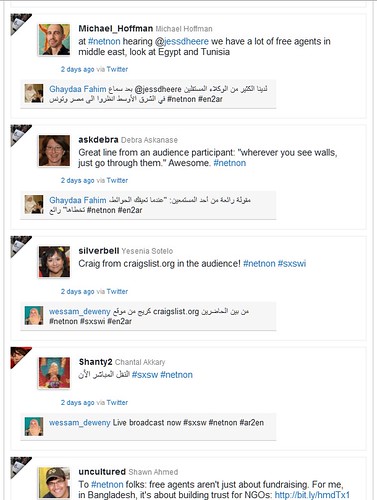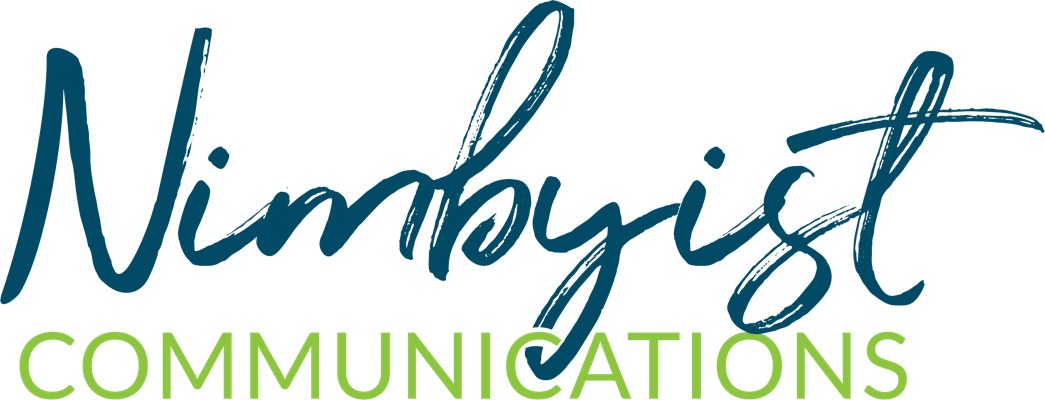I think recent events prove our world is shrinking. Not a new concept, of course, but I’ve been struck by just how connected I feel to events in Egypt, Japan, Libya; we can all become part of their community, share their experience.
Except for one very real barrier: Language.
What if that barrier disappeared?
 Beth Kanter’s SXSW presentation, which I summarized earlier this week, introduced me to a whole new possibility: groups like the Meedan community.
Beth Kanter’s SXSW presentation, which I summarized earlier this week, introduced me to a whole new possibility: groups like the Meedan community.
Meedan.net is an Arabic-English forum that combines machine translation with expert editors. On their site, news articles are posted in English and Arabic side-by-side; comments are also translated in the same way.
Translation is far from a new idea, but I’ve never seen it applied this way: a community-driven combination of tech and commitment, enabling real-time conversation among us “commoners”. I don’t have the resources of an international organization like the UN, and I don’t think I know anybody who can read Arabic – and yet, that wasn’t an issue.
During the Twitter chat around Beth’s presentation (#netnon) tweets were actively translated and posted in a curated chat. It was a weird and delightful thing to see my own tweets in Arabic.
I’ve heard people say that social media and/or the Internet have democratized communication — which sounds like a great idea, but I’ve never been a believer.
I just saw a tweet that 3 billion people in the developing world use mobile technology. If groups like Meedan enable anybody to truly connect online — regardless of wealth, social status, location, or first language — maybe democratized communication really isn’t so idealistic after all.
How do you think this sort of resource could be used?
Internationally, I can think of a lot of possibilities for collaboration – from connecting donors directly to people they’re supporting in developing countries, to connecting entrepreneurs with experts, or students with students.
On a more local level, I can see immigrant services groups using this as a resource, or even organizations connecting with similar organizations around the world to learn from and partner with each other.



Trackbacks/Pingbacks